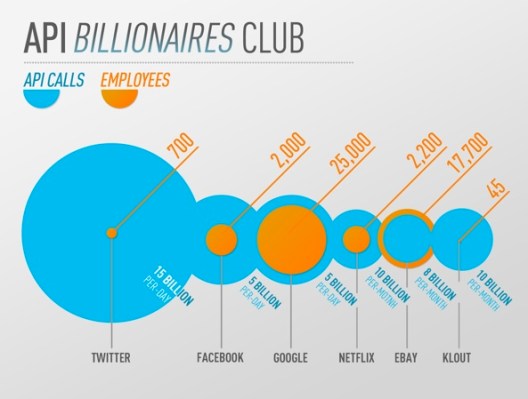Klout’s reputation is growing among investors. The startup, which provides a social credit score for more than 100 million public profiles across various social networks, raised C round of financing of around $30 million. Business Insider was the first to report the funding. The company declined to disclose the exact amount it raised, but we’ve confirmed that $30 million is “close” to the correct amount.
Kleiner partner Chi-Hua Chien, who has been a board observer since Kleiner led Klout’s $8.5 million B round last January, is now a full board member, along with another Kleiner partner, Bing Gordon, Mayfield’s Allen Morgan, and CEO Joe Fernandez. IVP and Venrock joined the round as new investors, and previous investors ff Venture Capital and Greycroft also put in more money.
I spoke with CEO Joe Fernandez and a couple of Klout’s investors today to get a sense of what kind of traction the company is seeing. Since it is still pretty much pre-revenue, some of the metrics the company measures includes growth in API calls, number of API partners, registered users and indexed profiles. The company topped 10 billion API calls in December, says Fernandez, which is up from 100 million API calls in January, 2011 and a few hundred thousand in April, 2010. API calls are a good indicator of demand for its data because it is the way other services consume Klout’s scores and mash them up with their own services.
The company has more than 4,000 API partners, up from around 100 in early 2010. And it has indexed north of 100 million public profiles. A few million people have actively registered on Klout.com in order to tie their various social profiles together (and boost their Klout scores).
“This is going mainstream way earlier than I expected,” says John Frankel of ff Venture Capital. “The reason we invested was that we believed by mid-decade people would care about their online reputations and would need tools to manage it.”
Klout is a marketplace of influence. It attempts to summarize what subjects a person has influence in, or is interested in, across Twitter, Facebook, LinkedIn, and other social networks. It tries to determine “where is this person’s mind at,” explains Frankel. “It is valuable, it is also perishable.” People’s interests wane, and they are interested in one subject today, but next week they might have moved on. Klout tries to capture this fleeting interest and influence and bottle it in a Klout score which varies by topic. I have decent Klout in Technology, not so much for Baking.
Knowing someone’s Klout can be valuable in different ways. Marketers want to reach influencers in different categories, but they also want to market to people based n their interests. Klout is already experimenting with ways to mediate between brands and users via Klout Perks. But the data could also become valuable to other services. Imagine a Klout score next to an eBay seller or someone offering a room on Airbnb. As the online world increasingly collides with the real one, the need for a reputation score that works across the Internet also increases. (Social proof, FTW).
Klout scores are far from perfect, but they are getting better. And they are simple to understand. If Klout can truly go mainstream and get everyday people to trust those scores, they can build a substantial business. If nobody cares about the scores, then all the VC money in the world won’t help them. But people do care, even if they don’t know what the scores mean. (It’s real-life Whuffie). Now go check your Klout score. It might have changed since the last time you did.
